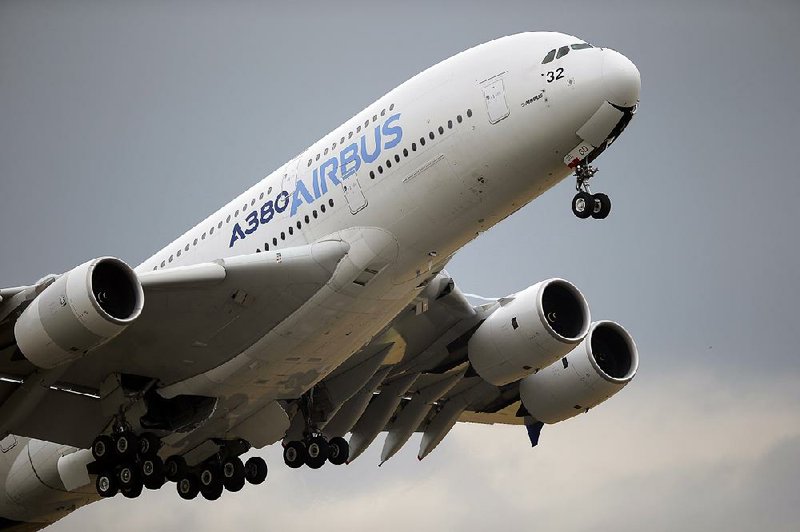GENEVA -- The World Trade Organization has formally given the go-ahead for the United States to impose trade sanctions on up to $7.5 billion worth of European Union goods after a ruling that the European plane-maker Airbus received illegal subsidies.
The move by the trade organization's dispute-settlement body was largely a formality after an Oct. 2 ruling by a WTO arbitration panel. For that ruling to be blocked, every country that attended the settlement body's meeting Monday, including the United States, would have had to reject it.
The $7.5 billion ruling found that the European bloc and member states Britain, France, Germany and Spain failed to remove improper subsidies for Airbus that hindered sales by its rival, the U.S.-based Boeing.
President Donald Trump's administration plans to impose the sanctions starting Friday.
Members approved the arbitration award -- the largest in the trade organization's history -- at a special meeting of the dispute-settlement body at the WTO's headquarters in Geneva.
The EU made a last-ditch appeal to the U.S. over the weekend to thwart the tariffs, seeking a negotiated settlement that would avoid the economic harm that such escalation would cause both parties. European Trade Commissioner Cecilia Malmstrom told her U.S. counterpart, Robert Lighthizer, that his tariff plan would compel the EU to apply countermeasures in a parallel lawsuit over aid the U.S. provided to Boeing.
"I strongly believe that imposing additional tariffs in the two aircraft cases is not a solution," Malmstrom said Friday in a letter to Lighthizer that was seen by Bloomberg News. "It would only inflict damage on businesses and put at risk jobs on both sides of the Atlantic, harm global trade and the broader aviation industry at a sensitive time."
Dennis Shea, the U.S. ambassador to the WTO, said at Monday's meeting in Geneva that the Trump administration's preference is to "find a negotiated outcome with the EU that ends all WTO-inconsistent subsidies," according to a copy of his remarks obtained by Bloomberg. Malmstrom said last month that the EU had reached out to the U.S. with a "detailed proposal" but that the U.S. wasn't willing to negotiate.
The EU said it would be "short-sighted" for the U.S. to impose retaliatory tariffs on European goods, and it urged the U.S. to find a "fair and balanced solution" to the dispute, according to a statement delivered by Paolo Garzotti, the EU's deputy head of its delegation to the WTO.
"Both the EU and the U.S. have been found at fault by the WTO dispute settlement system," Garzotti said. "In the parallel Boeing case, the EU will in some months equally be granted right to impose additional countermeasures. The mutual imposition of countermeasures, however, would only harm global trade and the broader aviation industry."
The EU has already published a preliminary list of U.S. goods -- such as ketchup and video-game consoles -- it would target in a $12 billion plan for retaliatory levies related to the Boeing case. The WTO will issue an arbitration award next year.
The office of the U.S. trade representative previously said it would impose a 10% tariff on large civil aircraft from France, Germany, Spain and the U.K. The U.S. will also slap 25% levies on a variety of items from various European nations, including Irish and Scotch whiskeys, wine, olives and cheese, as well as certain pork products, butter and yogurt.
Information for this article was contributed by staff members of The Associated Press and by Bryce Baschuk of Bloomberg News.
Business on 10/15/2019
